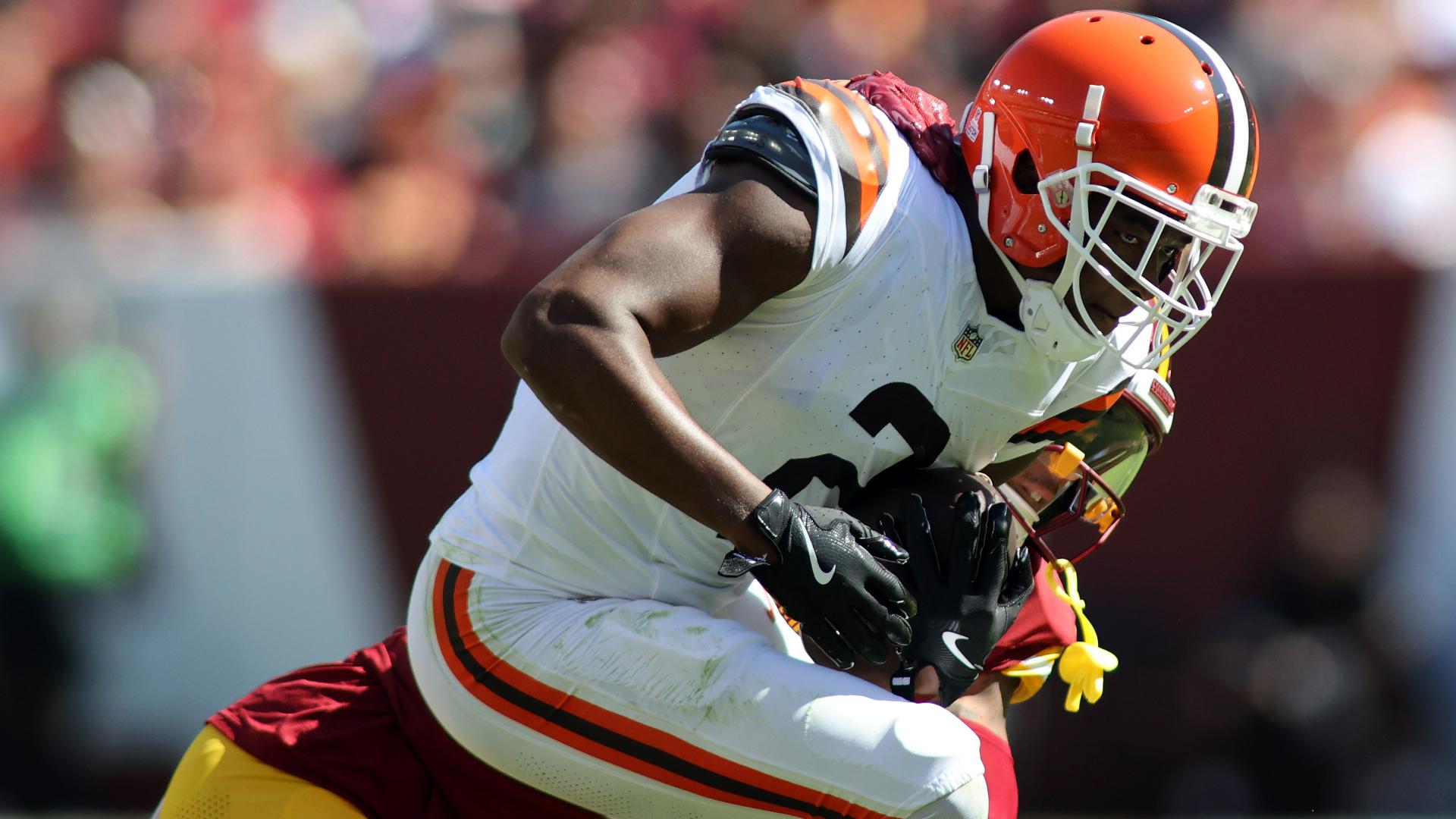ORCHARD PARK, N.Y. — Here are five thoughts on the Buffalo Bills’ trade with the Cleveland Browns Tuesday for wide receiver Amari Cooper:
1. It’s hard to declare either team as having “won” the deal, which means it probably served both well.
For the Browns, it amounted to a store that empties its shelves on the way to going out of business. They’re 1-5 and have no hope of doing anything but finishing out the regular season and preparing for another of the many overhauls the franchise has undergone through the years. With Cooper in the final year of his contract, keeping him while knowing he is bound to be gone after the season made zero sense.
For the Bills, it’s the most reasonably priced ability to bring a badly needed upgrade to the receiving corps. After parting ways with Stefon Diggs and Gabe Davis in the offseason, the team had left itself with no one who struck any sort of fear in opposing defenses. Through six games, the receivers with whom the Bills began the season have not consistently created separation from coverage.
Cooper could change that.
2. The price was right.
It isn’t only the trade price, which had the Bills send a 2025 third-round draft pick and a 2026 seventh-round selection to the Browns in exchange for Cooper and a ’25 sixth-round selection.
There also is the matter of Cooper’s salary. He’s due to receive a little more than $1.2 million, but the Bills will owe about $800,000 of that. That makes Cooper’s pay a good fit for the Bills’ salary cap, which had about $3 million in space before Tuesday.
There was plenty of clamoring among Bills fans for the team to acquire Davante Adams from the Las Vegas Raiders. He wound up going to the New York Jets on Tuesday. Bills followers are probably unhappy about that, but his contract would not have been nearly as good a fit.
Of course, it could be argued that you get what you pay for and perhaps, as the performance of both players is constantly compared through the balance of the season, that might be verified.
3. Cooper’s performance has declined significantly from his impressive 2023 season.
It’s fair to say that some of that is due to the fact his quarterback in Cleveland, Deshaun Watson, is having a terrible season. It’s also fair to say that some of that is the result of Cooper being on the decline.
Still, this is a receiver with seven career 1,000-yard receiving seasons. He set a Browns single-season record last year with 265 receiving yards on 11 receptions against Houston.
Cooper is known for being a reliable target who runs precise routes and has a good feel for finding gaps in coverage. He isn’t necessarily a burner, but he has shown enough game-breaking ability to command respect from opposing defensive coordinators as they set their game plans for him.
4. The Bills were incentivized to make the trade after the Jets picked up Adams.
Despite holding a 2 ½-game lead over the Jets in the AFC East after Monday night’s victory against them at MetLife Stadium, the Bills can’t assume that the Jets won’t make any sort of run as the season progresses. The reuniting of Aaron Rodgers and Adams, who were a dynamic duo as teammates in Green Bay, could provide a significant spark to a Jets team that has already made major changes with the firing of coach Robert Saleh and the naming of passing game coordinator/QB coach Todd Downing as offensive play-caller.
The Bills are counting on Adams to strike the kind of fear in opposing defenses that none of their other receivers have provided so far.
5. Which brings up the final point: Cooper’s impact on the rest of the receiver room.
His presence could allow the Bills’ other pass-catchers to become more productive because opponents, at least until there’s proof to the contrary, will likely direct extra coverage toward him.
Will there be hard feelings from the other receivers? Perhaps. But Cooper is viewed as a solid person and not a diva who will be complaining about not getting enough targets. He undoubtedly will be targeted a great deal, at least in the early going.

